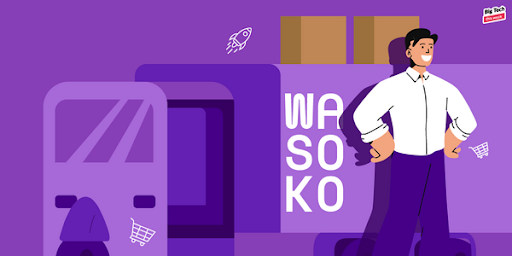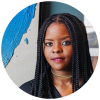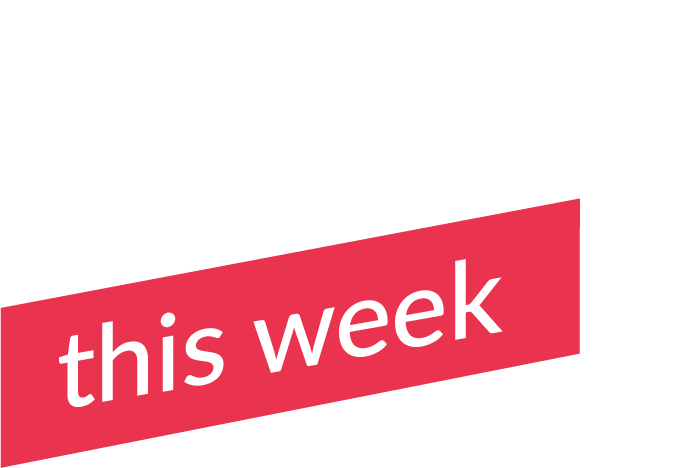Top of mind: Happy Sunday!
Silicon Valley VCs are notorious for one thing, throwing millions of dollars in funding at fintech companies. It’s rare for a non-fintech company in Africa to raise funding north of $100 million. Still, Wasoko, formerly known as Sokowatch, broke the record with $125 million in their recent Series B round.
In the second edition of our deep dive on tech titans in Africa, I spoke to Daniel Yu, Wasoko’s CEO, on what comes next for his 7-year-old company.
Let’s get to it.
How Wasoko built a $625 million company

A big step in the right direction
Large corporations do not run retail in Africa. Instead, its front line is made up of informal players who sell hundreds of billions of dollars in consumer products each year. This lucrative sector is plagued with inefficiencies in its supply chain, which is where businesses like Sokowatch make a difference.
Daniel: For Sokowatch, we thought – hey, what about targeting consumer goods companies and retailers struggling with restocking their goods. So, we contacted different consumer goods companies – Unilever, Procter & Gamble, etc.
It just happened that these brands had offices in Kenya and were interested in our work. So, they invited us out to launch the pilot, and that’s how we got started in Kenya.
Sokowatch was launched in Kenya in 2016 by founder and CEO Daniel Yu as a marketplace for delivering consumer items from suppliers to retailers across Africa.
The first 1000
Sokowatch has banked over 50,000 informal retailers across 6 African countries, fulfilling over 2.5 million orders. Daniel credits their current success to the marketing strategy that brought them their first 1,000 customers.
Daniel: We’ve always relied on and continue to use a field-force presence. We have field reps who go out into the market to meet shop owners in person – to explain our services, how it works and how to use them.
Breaking records
Sokowatch announced in March 2022 that it raised $125 million in Series B funding. The investment values the company at $625 million. This feat makes it Africa’s largest non-fintech round in the B2B retail e-commerce industry.
I asked Daniel how it felt the morning after closing a significant round in a market with a severe economic downturn.
Daniel: It was a huge relief, especially in the current market where just a few weeks after closing our round, the conditions shifted dramatically. So, we feel very lucky that we closed our round when we did.
A rebrand accompanied this milestone…
As Sokowatch evolved from an East African player to a pan-African one, Daniel believed the company was ready for a rebrand. So Sokowatch changed its name to Wasoko, which means “people of the market.”
Cutting out the middlemen
Wasoko’s model is simple. They buy products in bulk from manufacturers at a discount and deliver them to shops on demand. Its 35 distribution hubs in the 6 countries it operates deliver goods to retailers using same-day delivery models at no cost.
Daniel: Wasoko’s mission is to reduce costs as much as possible by bringing efficiency to the supply chain and cutting out the middleman. In most cases, Wasoko is the most affordable channel for these retailers, and they see us as the best fit.
Expansion in a shrinking economy
In the midst of a global economic crisis, firms such as Wave, a startup that raised $200 million and valued at $1.7 billion, laid off 15% of its workforce and halted expansion plans in June. Wasoko, on the other hand, plans to continue its expansion into West and Southern Africa this year.
Daniel believes that after seven years of honing its business, Wasoko’s ready to break into the Nigerian market – undoubtedly Africa’s largest market for informal retail – where it will be met with competition from companies like TradeDepot, Sabi and Alerzo.
Daniel: We’re fully committed to all the markets and countries that we’re in, both old and new. We don’t anticipate cutting back or laying off staff. We’re going to hire for a lot of key roles in the company, but we want to be smart and judicious. We don’t want to hire more people than necessary or expand to places where we’re not fully prepared.
Off the grid
In the hyper-visible world of big tech CEOs spending countless hours on social media to establish themselves as thought leaders in the tech industry – either for personal notoriety or brand visibility, Daniel Yu isn’t your typical CEO. A quick search may leave you dazed – Daniel’s MIA!
Daniel: I would say that while there are advantages to having a lot of visibility for a company from social media. They definitely can be disadvantages as well. But I think beyond all of that, at least for me, it’s just a matter of what I feel is the best ROI, the best return on investment for where I should be spending my time.
Okay, fair enough.
The end game
Daniel: My dream for Wasoko is that we become a foundational company for the African tech ecosystem that will endure for decades to come. If you look at some companies that got started during the early days of their tech ecosystems – Ali Baba and Tencent in China – because they got started early, they became embedded and foundational in their ecosystems, and then all the other companies were built on top of them by using their services in different ways.
Thats what I’d like for Wasoko.Final thoughts: It’s known that the climate in Africa is hardly optimal for tech startups. Daniel is determined to make Wasoko an African giant with deep roots across the continent. It’s a daunting undertaking, but it’s possible.
We launched a new show 🎉🎉🎉
It’s called One Big Thing, a weekly 60-second show on inside scoops of your favourite tech companies.
I hope you enjoy watching this debut episode. Also, feel free to send me ideas on stories you’d love to see me cover on the show.
New Show Alert! Debuting One Big Thing, @bigtechthisweek's spanking new weekly show on tech.
— Fatu (@fatuogwuche) July 24, 2022
It's short-form, 60 seconds and gives you the inside scoop on your favourite tech companies and VCs.
Watch, enjoy, and see you next week! 🚀🚀 pic.twitter.com/NdmtfDWzYg

